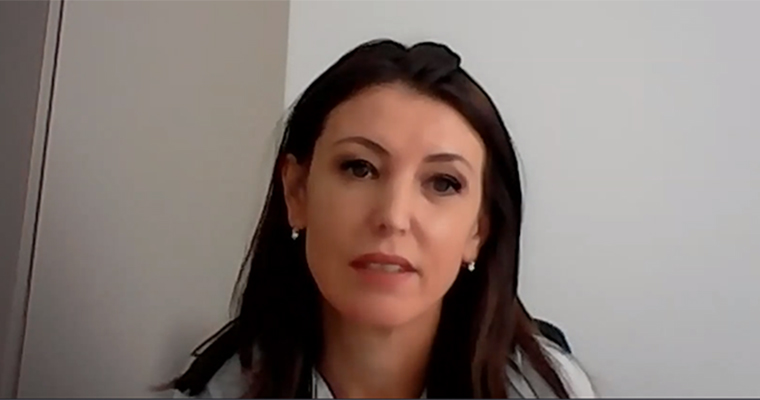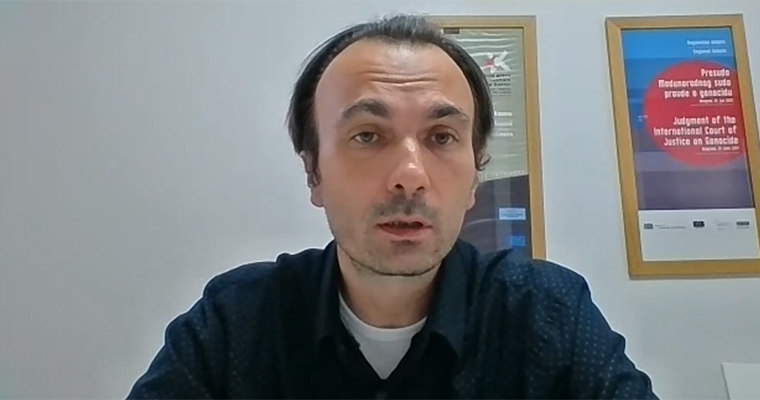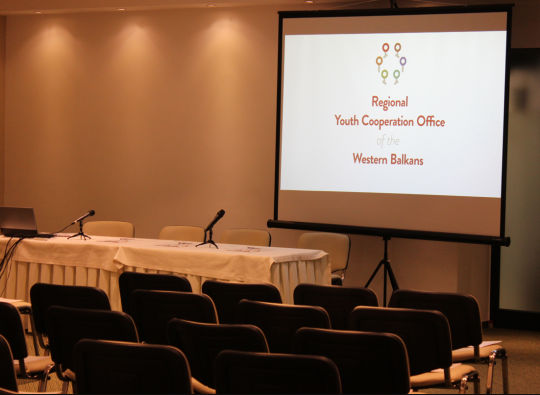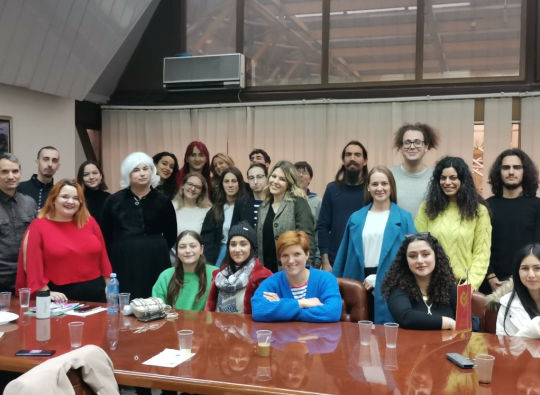Haxhiaj, who has reported on political, societal, and war past topics for international and Kosovan media for the past twenty years, reminded that the worst crimes in Kosovo were those committed against civilians whose bodies were hidden afterwards. To this day, many bodies are still not found, and many perpetrators were not brought to justice.
The international community is trying to exert pressure on both sides (Kosovan and Serbian) to open archives that have never been opened to the public, however this pressure is not sufficiently effective as there is no visible progress, particularly in the past 5 years during which very few missing persons were found, states Haxhiaj, adding that it is necessary to put more pressure on institutions to find those who have more information about the events surrounding the disappearance of those who are now categorized as missing persons.

Those people did not simply vanish into thin air, someone murdered them and hid their bodies. This is why the cooperation between both sides’ institutions is crucial in order for perpetrators to be held accountable and for the missing to be found, claims journalist Serbeze Haxhiaj.
Miletić (HLC): Start legal proceedings against those who are responsible, uncovering the graves is not enough
Predrag Miletić, from the Humanitarian Law Center which created the Database of war crimes and human rights breaches and has dealt with research of crimes committed during the ‘90s wars, said during the debate that there are cases where human remains were found and exhumated, but the results of investigations and judicial proceedings were lacking.
Miletić says that we can see on the example of the Rudnica mass grave how these cases look – where graves are found but no investigation follows. He also finds it important that although the issue of the disappeared is marginalized in Serbia and Kosovo, the European Commission considers this issue a central theme in the Belgrade-Pristina negotiations, which demonstrates a great dedication on part of the EU to resolve this issue in a much more efficient way.

Miletić reminds during the debate that, when it comes to the archives, which are crucial for finding the disappeared, it is of immense value to interview the persons who were involved in hiding the crimes, such as for the case of the Batajnica mass grave uncovered in 2001.
Serbeze published a few stories on KLA members, ones where they claimed no war archives exist, which isn’t true, Miletić states. He adds that a large number of people were involved in hiding the crimes, such as drivers, divers, diggers – all persons who need to be talked to. Miletić adds that in the archives we can find details on mass graves, as well as daily reports that could indicate the circumstances under which war crimes were committed, and that this could be a starting point for many investigations..
BIRN journalist Serbeze Haxhiaj stresses that it is an issue that crimes committed by Serb units were more thoroughly documented than those committed by the KLA, where there is a lack of archives and documentation about their crimes. She adds that most of the Serbian nationality victims was killed during the war itself, that is from July to November 1999, which is why those responsible for these crimes (former KLA leaders) refuse to take accountability, seeing how those crimes were mostly committed by smaller groups or even by individuals.
“Witnesses fear for their safety”
During the debate, Predrag Miletić reminded that there are persons in Serbia whose testimonies na debati povodom Međunarodnog dana nestalih podseća i da u Srbiji postoje ljudi čija bi svedočenja bila od velikog značaja za istrage, ali se oni plaše za svoju bezbednost.
Miletić states that this is why they are unwilling to share the information they have about what happened during the war, and that they would do that only if they were offered a foreign passport and a lot of money.
“Kosovan civil society unprepared to resist propaganda”
On the topic of Serbian and Kosovan cooperation in the process of finding the disappeared, Serbeze Haxhiaj says that the two societies need to exert more pressure for this problem to be solved, and that we carry a huge burden, not just in dealing with the past, but for the sake of peace and cooperation amongst our societies. Dealing with war crimes is difficult for everyone, she says, adding that peace advocacy in Kosovo is being drowned out by the strong propaganda that reconciliation is something that is in opposition with Kosovan independence.
Serbeze Haxhiaj says that this is why she thinks that civil society isn’t strong enough, and that she doesn’t know if civil society in Serbia is strong enough to resist pressures and influence the resolution of the issue of missing persons.
The online debate “The issue of missing persons 20 years after the war in Kosovo” was organized by the Youth Initiative for Human Rights on occasion of the International Day of the Disappeared. The discussants were Serbeze Haxhiaj, BIRN journalist, and Predrag Miletić from the Humanitarian Law Center. The debate was moderated by Anđela Savić from the Youth Initiative for Human Rights.









